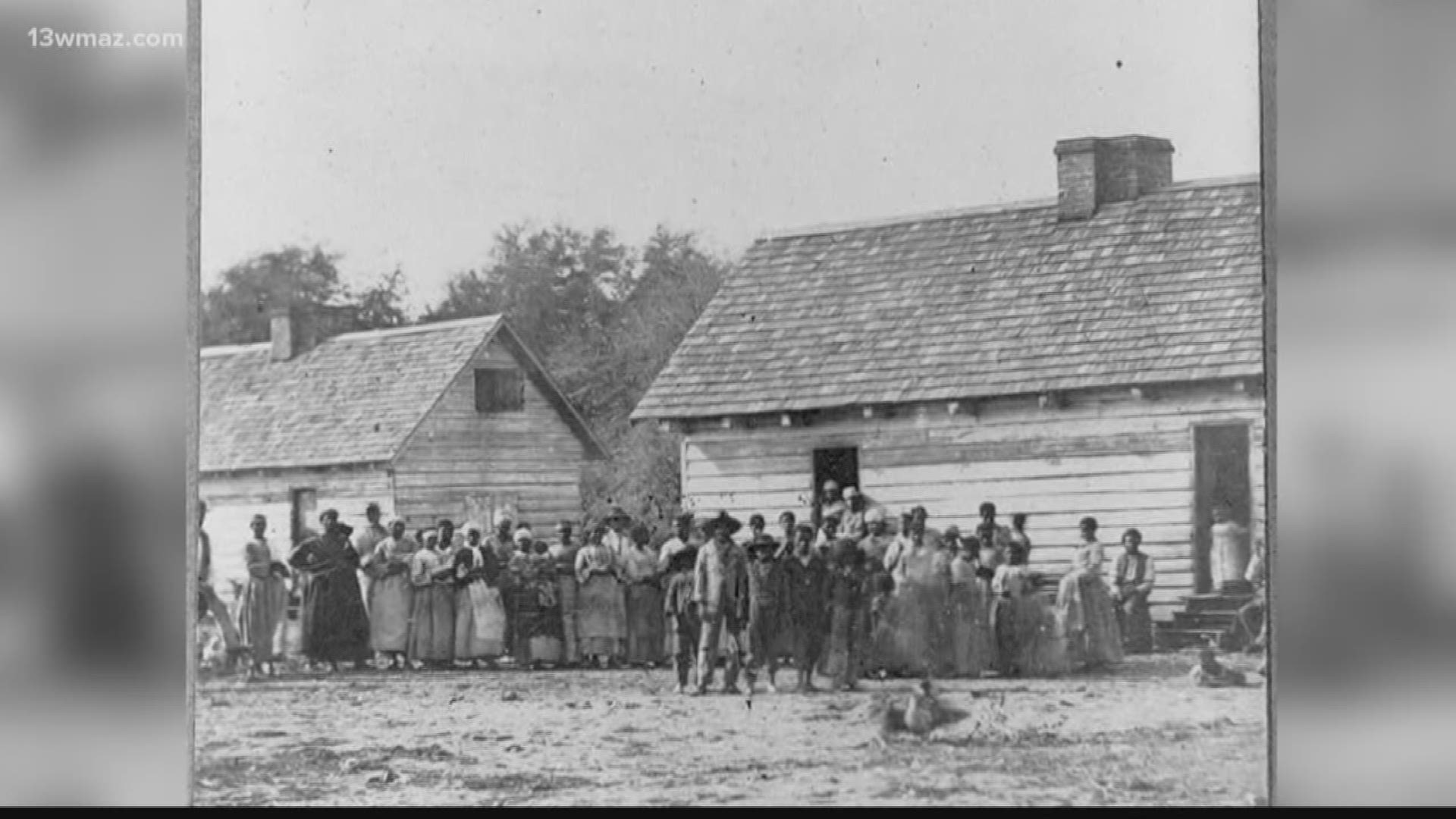Mercer and the Bibb County Courthouse staff are working on a historical project with heavy undertones.
It's a process that once complete, will help shed light on a dim time in local history.
Chester Fontenont is an African studies professor at Mercer and his friend Erica Woodford is Bibb County's Superior Court clerk.
"I would look and see what kind of records we have and I started pulling these books," Woodford said.
What was in those books -- nestled in what is called the vault of the courthouse -- was startling.
"I noticed actual slave transactions and so it gave me chills," Woodford recalled.
Woodford joined Fontenont, and now the county and Mercer University are working together to digitize all of the records.
Mercer students like Tiffani Alexander have spent countless hours documenting page by page what's this cursive script reveals.
"I basically found a record from Jarrell Plantation where one of the owners of Jarrell Plantation is selling a slave to a person named Nathan Rogers," Alexander said.
The project began five years ago and Fontenont believes it will take another three before the public can access all of this online.
"These documents are so important; first to understand what happened in Bibb County," Fontenont said. "Bibb County was incorporated in 1823, so that's where the documents start. There in 1823 and then of course the freedom of people of African descent in 1865."
It's unusual to have this many records at the Bibb County courthouse because if you think about it, over the last century or so, many of these types of records have been destroyed in one way or another.
"It's very rare, like in Twiggs County, their courthouse burned a long time ago. Hancock County just recently, their courthouse burned down," Woodford explained.
"Others have had significant water damage," Fontenont said.
What's undeniable is the damage done from a mental and physical standpoint of people bought and sold, and those scars reach through the decades to the folks bringing these memories back to life.
"To have these documents... it brings it all to life and it brings the people to life when we just lump everyone together and say everyone was slaves, well that denies people their individuality. It denies people thier substance, their humanity," Fontenont said. "These people had names, they had families, they had desires, they had wants, they had needs and they should have had rights."
There's raw emotion, but Fontenont says the project has also shed some light.
"It makes me sad. It makes me angry, but it also lets me know that we've come a long way as a society and so there's hope as we look at these documents," Fontenont said.
And there's also a promise to bring all the stories into the open with a collaborative effort to preserve pieces of Central Georgia's history.
When the project is finished, you will be able to access these records through the Bibb County courthouse site online.
Fontenont says down the road, they will also search for these types of records in the Jones, Twiggs and Monroe courthouses.

